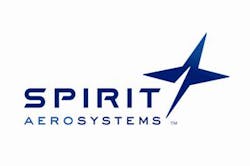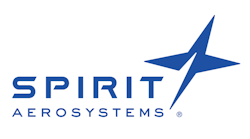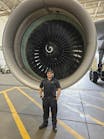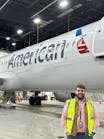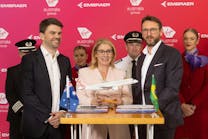Aug. 07--Spirit AeroSystems, the subject of buyout rumors in recent weeks, rocked the local aerospace community Tuesday when it announced plans to sell its Tulsa and McAlester manufacturing sites, which together employ close to 3,000 people.
Yet Spirit's top officer also left the door open to keeping the Oklahoma facilities among its assets if a suitable buyer is not found.
News of the possible sale coincided with Spirit delaying Tuesday's scheduled release of its second-quarter earnings. The Wichita, Kan.,-based company's auditors had not completed their work in time to release the financial information, Spirit said.
Spirit AeroSystems Holdings Inc. laid off 360 people in late July, including engineers and others in Tulsa. The Tulsa plant is performing well, CEO Larry Lawson said during a conference call Tuesday, but it is caught up in a company-wide restructuring that may be completed by the end of the year.
"The decision to divest Oklahoma is a strategic decision about where Spirit is most differentiated in the aerostructures market and about current and future resource allocations," Lawson told analysts. "I can tell you this was a difficult decision. The Oklahoma sites are performing well today and improving."
In fact, Chief Financial Officer Philip Anderson said, the Tulsa site generated 12 percent to 14 percent of the company's $3 billion in revenue during the first two quarters. The plant's aircraft wing unit accounts for about 40 percent of revenue within that segment, he added.
"We think it's a very attractive asset," Anderson said. "We expect good dialogue with a number of potential buyers."
Spirit's Tulsa workforce of close to 2,800 makes components such as wings, fuselages and pylons for Boeing Co., Airbus and Gulfstream planes.
The McAlester plant employs about 300 people.
Spirit's restructuring is across the board as the company reviews how it handles workload and overhead, to how it buys materials, Lawson said.
He did not rule out the possibility of Spirit holding on to its Oklahoma assets if offers were not good enough.
"At this point in time it's worth determining whether there's a better owner for these sites," Lawson said. "If we turn out to be the best owner, we will be proud to own it, and we will continue to march toward delivering world-class results."
Tulsa Regional Chamber President and CEO Mike Neal said he was encouraged that Lawson commended the Tulsa plant. Neal added that discussions about divestitures are a fact of corporate life, but that he was optimistic.
"In the event the company sells its Tulsa operations, the chamber, city of Tulsa and other workforce and economic development partners across the region will remain engaged in encouraging buyers to continue investment in the Tulsa operations and our highly skilled aerospace and manufacturing workforce currently working in the plant," Neal said.
Spirit AeroSystems operates out of the former Air Force Plant No. 3 at Tulsa International Airport. The company was formed in 2005 as a spinoff from Boeing, which had operated the Tulsa site.
Prior to that, Air Force Plant No. 3 was occupied, at various times, by Douglas Aircraft, McDonnell Douglas and Rockwell.
Recent rumors have focused around the complete buyout of Spirit. The Daily Mail, a British newspaper, reported that GKN Plc is preparing a takeover bid for about $35 a share.
Shares of Spirit dropped 3 percent Tuesday, closing at $25.01 on the New York Stock Exchange.
Mayor Dewey Bartlett said that in the event the plant is sold, Tulsa has many manufacturing and energy companies looking for additional people.
"But in my view, we don't need to get worried," he said. "We have a very strong aviation and aerospace industry, and it will continue the same."
Spirit has struggled recently with its own suppliers on capacity and costs as planemakers around the world boost production, industry analysts say.
Spirit received a $2.55 million payroll tax rebate from the Oklahoma Quality Jobs Program in June, one month before the most recent layoffs. Company spokesman Kenneth Evans pointed out that the Tulsa workforce totaled more than 2,800 at the end of June, more than double the 1,215-worker baseline at the plant when Spirit entered the state's incentive program.
He did not specify how many Tulsa workers were eliminated.
Spirit has been a part of Quality Jobs since June 2006, shortly after the manufacturer was spun off from Boeing Co. Spirit has received $18.8 million in Quality Jobs rebates from the state since 2007, records show.
The Legislature passed a bill this year to create "clawback" provisions for companies that take Quality Jobs incentives and then leave the state. The bill was signed by Gov. Mary Fallin but wouldn't apply to Spirit because the company still operates here.
Spirit also laid off what it termed a "small number" of Tulsa workers in March.
Last November, Tulsa County voters rejected a $386.88 million sales-tax package, a portion of which would have funded upgrades for the airport industrial area's three major tenants -- Spirit, the American Airlines maintenance base and school bus maker IC of Oklahoma LLC.
Spirit AeroSystems timeline
2005: Company created as spinoff of Boeing's Wichita division. Tulsa becomes aerostructures business unit.
2006: Initial public offering.
2007: Spirit announces plans for Malaysia, its first manufacturing site in Asia.
2010: Boeing experiences delays with 787, parts of which are built in Tulsa.
November 2012: Longtime Spirit CEO Jeffrey Turner announces retirement.
March 8, 2013: Company announces "small number" of layoffs in Tulsa.
March 19: Former Lockheed Martin executive Larry Lawson named to replace Turner as CEO.
June: Quality Jobs Program pays $2.55 million to Spirit for hiring and retaining extra workers.
July: Spirit lays off 360 workers companywide, including unspecific number in Tulsa.
Tuesday: Divestiture planned for Tulsa and McAlester sites, company officials say.
Rod Walton 918-581-8457
Copyright 2013 - Tulsa World, Okla.
